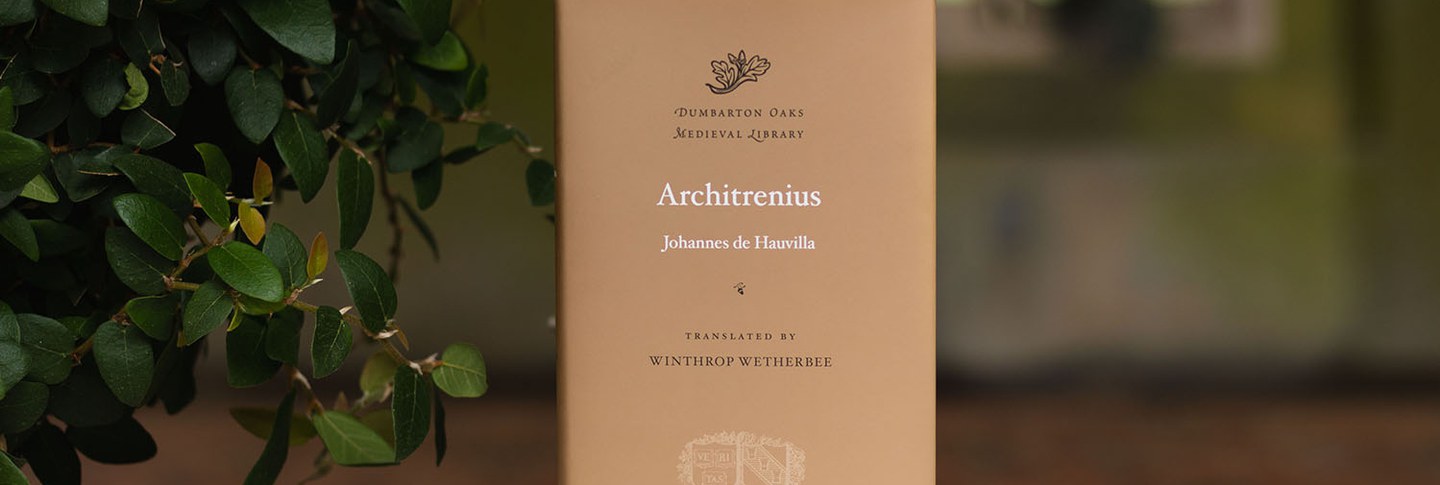What do you get by crossing social satire with a sweeping epic quest? If you’re Johannes de Hauvilla—12th-century intellectual, scholar, and teacher at an important cathedral school in France—the answer is Architrenius, an allegorical epic poem about a young man’s quest to find Nature, take her to task for society’s sins, and petition her to repair mankind’s weakness and his own. Newly published in the Dumbarton Oaks Medieval Library series, Architrenius (Harvard University Press, 2019) appears in a fresh translation by Winthrop Wetherbee, professor emeritus at Cornell University.
The hero’s name, Architrenius, coming as it does from Greek, immediately signals the poem’s scholastic pedigree. The language was known to relatively few in the medieval West, but Greek works were the catalyst for a great 12th-century explosion in philosophy and learning that would define Johannes de Hauvilla’s generation and the ones that followed, as previously inaccessible works by Greek thinkers like Aristotle, Ptolemy, and Galen were translated into Latin for the first time. “Architrenius” means “arch-weeper,” the ultimate mourner, and he earns the title from his constant lamentation throughout his journey. Upon setting out, he weeps for himself, as he has examined his own life and regrets his history of sin. But while traveling, from the house of Venus through the schools of Paris to the Mount of Ambition, the Hill of Presumption, and beyond, he grieves also for the corruption he witnesses everywhere around him. The landmarks he passes are not landscapes and streets, but the selfish and immoderate behaviors of his society; realism does not lie in specific geographical settings or historical characters, but in barbed satire on human nature and the excesses and foibles of scholarly and courtly life.
Ostensibly a condemnation of vice, John of Hauvilla’s luxuriously painted vignettes nevertheless enthrall readers by depicting immodest excesses of physical lust, sumptuous dress, and more, tempting us to enjoy semi-illicitly what we ought to denounce. The visit to the house of Venus has as its centerpiece a catalogue of the beauties of one of the goddess’s maidenly attendants, a richly objectifying feast for the reader’s mental eye that runs for two entire chapters. A full paragraph is dedicated to her hairstyle alone, another passage to her smooth and shapely calf, which “shuns the light rasping of pumice,” as “no bristly thicket of hairs dreads having the roots of its bushes torn up” by a shaving razor. But even once her dainty foot is reached, there is no pause in lavish detail, and instead the poet’s gaze turns directly from female beauty to male. At once the poem embarks on a similarly exhaustive description of the god Cupid, from muscular legs to windblown coif. It even depicts the flashy gold necklaces on the “noble mass of his chest.” Divinely allegorical bling!
The representation of Venus’s handmaiden is voyeuristically steeped in medieval conventions that depict women as passive or sometimes sinful traps for male desire; and deliberately so: Johannes’s treatment of all human weakness and vice displays a tension between condemnation and covetous enjoyment. When the poet rails against Gluttony, he does so with impassioned eloquence, as Architrenius sobs this time for the misdirection of Nature’s bounty toward surfeit, waste, and the sick decay of overloaded digestion. Profligate aristocrats go so far in their conspicuous consumption as to put real gold in their food! (It is uncertain whether Johannes describes here an actual practice of his age, but surely if he had lived to encounter Goldschläger he would not have approved.) Still, Johannes doesn’t hold back from enticing rhetorical luxury, even in excess. Condemnations of drunkenness are closely preceded by equally florid praise of Bacchus, the god of wine. “The importance of sauces,” as advertised by one chapter’s title, lies in piquing jaded appetites: “flavors may be drawn together from the entire universe, the wanton stimulus of spice enhance the feast, and a more intense flame descend on the burning palate.” To taste these foods is to travel to the remotest corners of the world, and the feast for the taste buds is an explorer’s sensuous banquet. While Architrenius may bewail the excess, the reader still partakes.
Closer to home, Johannes offers an intimate and realistic, if exaggerated, description of life for Paris’s striving academics in what was then crystallizing into one of Europe’s first university towns. The life of a scholar is, in Johannes’s depiction, difficult and thankless, characterized by poverty and insufficient reward or recognition from the wealthy or powerful. Johannes’s “shaggy horde of logicians” in tattered clothes and desperate need of a haircut—true medieval Einsteins, these—labors deep into the night over heavy tomes, the mental effort of philosophy bursting out as physical exertion. The thinker “pants and groans as the barriers are broken, brings the hot blood into his face, and with blazing eyes puts forth his utmost furious effort,” finally breaking free to the clear and bright air of enlightenment and a pure knowledge of the heavenly spheres.
When Architrenius reaches journey’s end, he meets Nature at last, and the poem comes full circle, from Venus’s handmaiden to Moderation, the lovely attendant whom Nature offers to the hero as a bride. By embracing Moderation—but only within the wholesome bonds of matrimony!—Architrenius’s renunciation of vice is complete and his depression cured. The wedding is celebrated with a feast, albeit of “modest sufficiency,” and the marriage contract brings a dowry of sober virtues culminating appropriately with “a careful concern to speak briefly and concisely” and a literary style “that is not impoverished yet not fulsome.” Considering Johannes’s own rhetorically extravagant verse, questions may linger as to the efficacy of this dowry of restraint: the longed-for consummation to Architrenius’s quest arrives only after a journey of nine books. To the end, Architrenius defies an easy or formulaic decipherment of its allegories, always both winking at cherished virtue and condemning a sometimes too-charismatic vice.
Buy Architrenius and browse other DOML volumes at domedieval.org.
Nicole Eddy is managing editor of the Dumbarton Oaks Medieval Library.

